Educator Guides
-
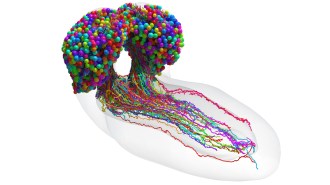
The Fruit Fly Brain in Exquisite Detail
Scientists study the tiny fruit fly to understand how organisms work. In this Guide, students will learn how scientists mapped the nerve cells in a larval fruit fly brain — a task that took 12 years — and learn about those cells. -
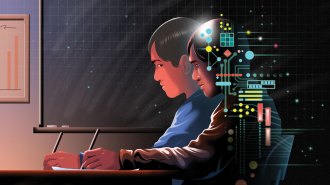
Homework Help? ChatGPT is Poised to Disrupt Education
Playing around with ChatGPT is enormously fun, and the technology can be useful. But there are pitfalls too. In this Guide, students will learn about AI and the benefits and challenges posed by the chatbot. -
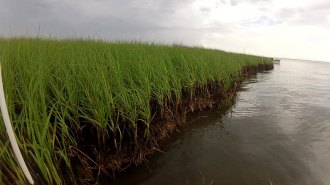
Shores Still Reeling from 2010 Oil Spill
Soil erosion happens naturally and through human actions. In this activity, students will explore how an oil spill changed Louisiana’s coastline, and they will look for examples of landscape features that were created by erosion and examples of human-caused erosion in their area. -

This Dwarf Planet Hosts an Odd Ring
In science, the exceptions offer researchers a chance to think differently about a concept they thought they understood. In this Guide, students will learn how astronomers use a concept called the Roche limit and how a ring around a dwarf planet does not follow the Roche limit rules. -
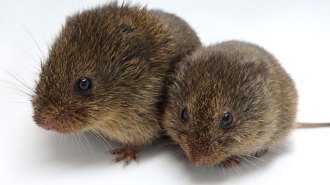
Voles Don’t Need Oxytocin to Bond
Scientists thought the “love hormone” oxytocin was required to help animals form social bonds. In this Guide, students will learn how a study using a gene-editing tool called CRISPR is questioning that perspective — at least for prairie voles. -

Chemists Crack the Code to Ancient Roman Concrete
The ancient Romans built concrete structures that have stood for thousands of years. In this Guide, students will learn how scientists experimented to make Roman-style concrete — without causing explosions! -
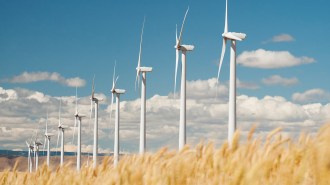
The Road to Net-Zero
Human activities pump a lot of greenhouse gases into the atmosphere, and those emissions are driving climate change. In this guide, students will review greenhouse gases and their sources and learn about ways to reduce emissions. -

The Metric System Has Gained New Prefixes
In this guide, students will learn about new measurement prefixes, work with those prefixes in metric conversions and create their own units of measure. -

Human Population Hits a Milestone
The world population has reached 8 billion people, according to the United Nations. In this guide, students will learn about how the human population has grown over time and how it is projected to grow in the future, then analyze a graph of world population data. In a quick activity, students will think about how a growing human population might impact various industries and how changes at the national or international level might help those industries support a larger population. -
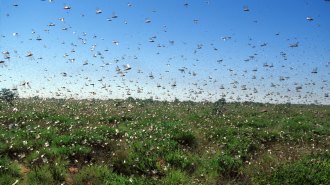
Insect Swarms Might Electrify the Sky
Large swarms of insects could produce as much electricity as a storm cloud. In this guide, students will explore how insect-induced static electricity might affect the atmosphere, review the concepts of electric charge and electrostatic force, and apply those concepts to their own experiences and the biological phenomenon of insect swarms. In a quick activity, students will create a poem or song about serendipity in science. -
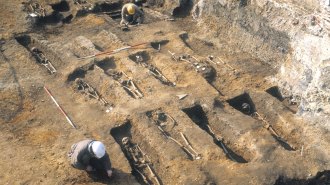
Plague Immunity Left a Lasting Mark
Traces of one of history’s most infamous pandemics may linger in our genes. In this Guide, students will learn about a genetic link between the Black Death and a modern-day disease and discuss basic genetics concepts at the individual and population levels. -

NASA’s DART Mission Is a Success
Did you hear about the spacecraft that crashed into an asteroid — on purpose?! In this guide, students will learn about NASA’s DART mission and discuss the core physics principles behind it.